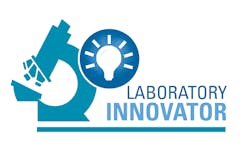Insights from the Department of Defense’s largest laboratory
What is the current vacancy rate at your lab? What strategies have you found to be successful in recruiting and/or retaining staff?
Are there particular ‘lessons learned’ you can share with fellow Laboratory Directors?
Build a good team! Have a clear vision, share it with your team, and then get everyone on board to attain those goals. Often that means moving people to where their strengths lie. It is easy to get into the habit of putting out the daily fires. We all need to take a breath sometimes, look to a spot in the future, and grow and evolve together as a team.
What are some of the biggest challenges you’ve faced/anticipate facing in the next year? What do solutions to those look like?
I have been asking my staff to burn the candle at both ends for a while in the hopes of returning to the tempo we had pre-pandemic; however, it appears that COVID is here to stay and this is no longer a viable option. It’s time to refocus the lab to optimize our staffing and resources, while taking care of our people to avoid the risk of burn out.
What are your goals for the lab next year?
Make routine work as automated as possible, get new staff on-boarded and working at the top of their capabilities, and streamline processes so I can create the bandwidth for more special projects, research, and new innovations.
What does being a Lab Director mean to you?
I’ve been fortunate to always have an exceptional military and civilian team so I knew CAP/AABB compliance was in good hands. That way, I could focus on meeting with the clinical teams, learning what they need, and building relationships. Taking a step back instead of micromanaging issues helps me build better lab/hospital relationships.
What characteristics do you think make a successful blood bank specialist?
Solving puzzles and being methodical! When I set a specialist in blood banking (SBB) onto a task to resolve a complex antibody panel, I need someone who can really dig into it, not just follow an algorithm. Patients can always surprise us so you can’t cut corners or make assumptions. Attention to detail and a passion for patient care are key!


